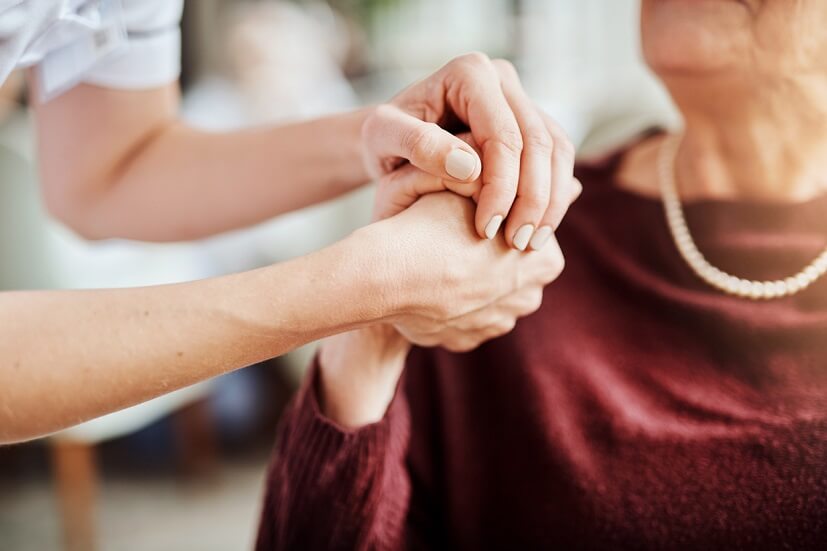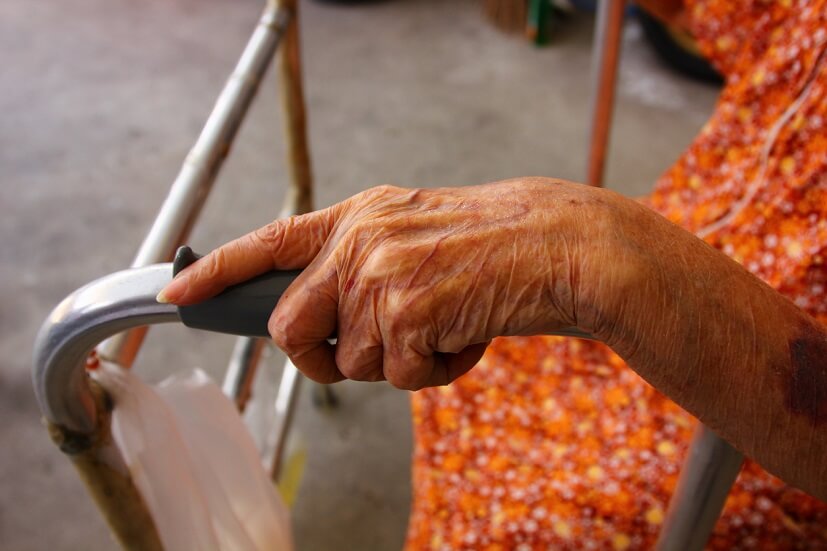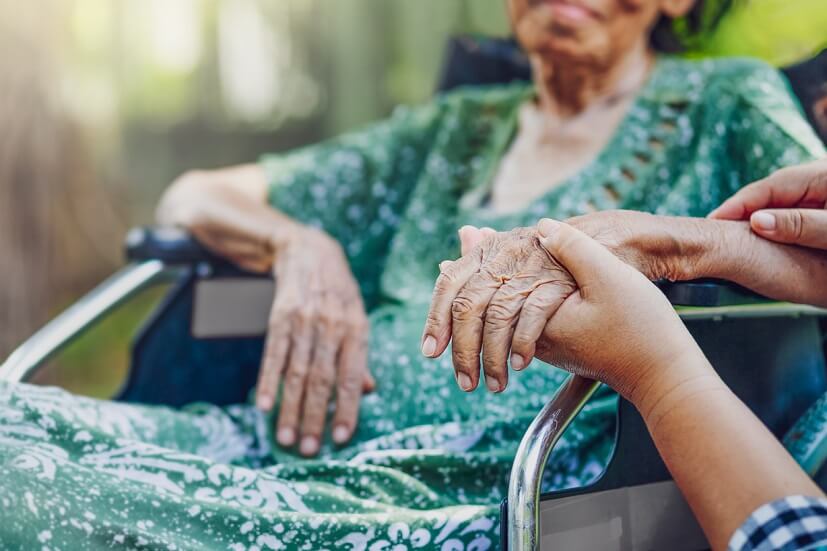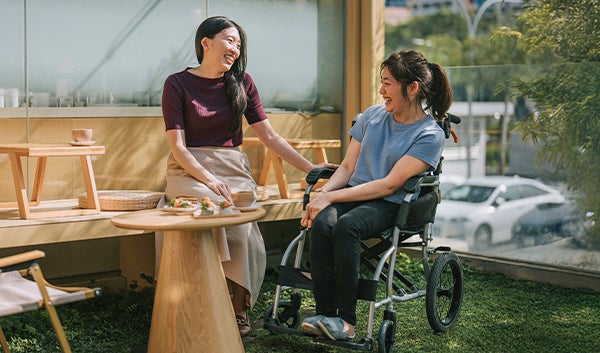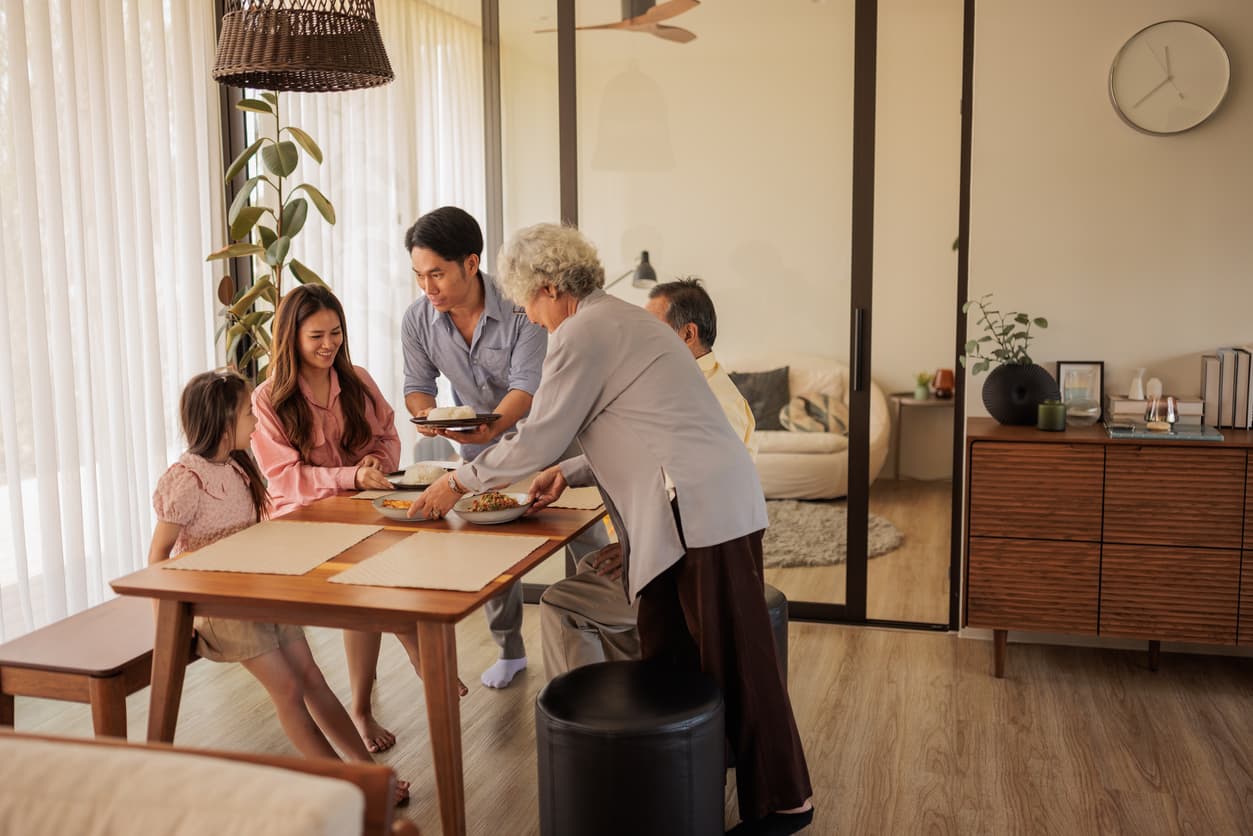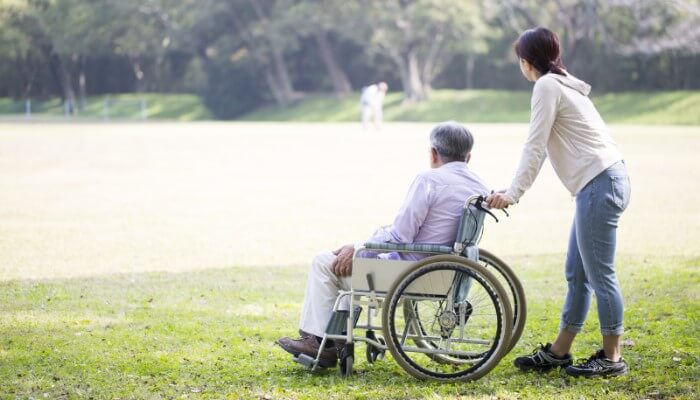Everything You Need to Know About Nursing Homes in Singapore
In recent years, Singapore has surpassed Japan in having the largest ageing population in the world with citizens aged above 65 years, with our average life expectancy rising to 83 years.
Unfortunately, with that, comes health conditions and disabilities as people grow older. In fact, one in two Singaporeans is at risk of severe disability at the age of 65, and this is defined as the inability to do at least three of the following six activities of daily living:
| Washing | The ability to wash in the bath or shower (including getting into and out of the bath or shower) or wash by other means. |
| Dressing | The ability to put on, take off, secure and unfasten all garments and, as appropriate, any braces, artificial limbs or other surgical or medical appliances. |
| Feeding | The ability to feed oneself food after it has been prepared and made available. |
| Toileting | The ability to use the lavatory or manage bowel and bladder function through the use of protective undergarments or surgical appliances if appropriate. |
| Walking or Moving Around | The ability to move indoors from room to room on level surfaces. |
| Transferring | The ability to move from a bed to an upright chair or wheelchair, and vice versa. |
In such cases, round-the-clock professional nursing care and rehabilitation therapies may be required, and that is where nursing homes come in.
Nursing homes in Singapore
Run by either the private sector or social service agencies (SSAs – previously known as voluntary welfare organisations or VWOs) in Singapore, nursing homes are essentially long-term residential care homes which provide many services to its residents who are unable to be cared for at home by caregivers or service providers including:
- Assistance with activities of daily living such as showering, going to the toilet, and eating.
- Skilled nursing care and supervision 24/7.
- Rehabilitation therapies and programmes to stimulate cognitive functions.
That said, it is important to note that not everyone can be admitted into a nursing home in Singapore. Whether or not an elderly person can enrol in one depends on his or her eligibility. These include:
- Being physically or mentally disabled due to an illness.
- Facing mobility issues including being wheelchair-reliant or bedbound.
- Being unable to be cared for at home by their family or a paid domestic worker and have tried all other care options including daycare and home nursing care, among others.
Some nursing homes also provide seniors with respite care, in cases where caregivers only require short-term services. This is provided the elderly person meets some minimum criteria, like needing moderate-to-high nursing care needs, and already has arrangements for long-term care.
Night respite can also be offered by nursing homes, but specifically to caregivers of persons with dementia with sundowning behaviour (a state of confusion which causes a variety of behaviours which starts in the late afternoon, all the way throughout the night), to allow them the opportunity to take a breather from their night-time caregiving duties.
Costs of nursing homes in Singapore
Generally speaking, nursing homes can cost anywhere from $1,200 to about $4,500 per month, depending on the type of bedroom and level of care required, and that’s not including the variable charges on special, emergency, or necessary needs. While it can be expensive, subsidies from the Ministry of Health (MOH) can help to offset 10 to 75 per cent of the monthly fees.
There are a few criteria that need to be fulfilled to be eligible for a subsidy on nursing home costs in Singapore such as the following:
- The recipient must be a Singapore Citizen or a Permanent Resident.
- The recipient must meet the admission criteria.
- The recipient has already been receiving care from a MOH-funded service provider.
The subsidised rate is also dependent on the monthly household income of the recipient. For example, citizens with a household income of $800 and below are eligible for a 75% subsidy, while those with a household income of $2,801 and above are not eligible to receive a subsidy from the government.
Choosing a nursing home in Singapore
It is important to ensure that the nursing home you choose to admit your elderly to would not only provide the best care possible but also its livability as this would be a long-term arrangement. It would also put you and your loved ones at ease knowing they are in good hands.
So, before you choose a nursing home, ask yourself (and the nursing homes) these questions:
- Is the nursing home easily accessible in terms of location and flexibility in visitation?
- Does the nursing home provide a comfortable and conducive environment which will help improve the quality of life for your loved one?
- Is the overall noise level of the nursing home tolerable for optimal living comfort?
- Is food prepared hygienically at the nursing home and if applicable, whether certain dietary restrictions can be met?
- How do the nursing home employees treat their residents and are there enough caretakers for all residents?
CareShield Life and ElderShield for basic long-term protection against severe disabilities
Even with subsidies from the MOH for nursing homes, there are a lot of out-of-pocket expenses which can burn a huge hole in your pockets, and even more so for long-term care. ElderShield was introduced in 2002 to provide basic financial protection to those who require long-term care, especially in their golden years. CPF members with a MediSave Account will automatically be enrolled in the scheme when they reach 40 years of age unless they opt-out of it.
ElderShield provides its policyholders with a lifetime coverage against severe disabilities and the premiums are paid annually via MediSave until the policy anniversary after your 65th birthday, or when a claim is made. Depending on when a policyholder joined ElderShield and whether they upgraded their cover to Basic ElderShield 400, policyholders will receive the following benefits from ElderShield once they are assessed to be severely disabled:
| ElderShield Policy | Monthly Benefit | Payout Period |
|
Basic ElderShield 300 (If you joined before 30 September 2007) |
$300 | Up to 60 months (5 years) |
|
Basic ElderShield 400 (If you joined on or after 30 September 2007, or upgraded to ElderShield 400) |
$400 | Up to 72 months (6 years) |
The good news is that the Government launched CareShield Life on 1 October 2020, an enhanced national long-term care insurance scheme which aims to provide better protection against the uncertainty of long-term care costs if you were to become severely disabled.
If you are a Singaporean born in 1980 or later, you are automatically covered under CareShield Life from 1 October 2020, or when you turn 30, whichever is later.
If you are a Singaporean born in 1979 or earlier, CareShield Life is optional for you.
- For those born between 1970 and 1979, insured under the ElderShield 400, and are not severely disabled, you are automatically enrolled into CareShield Life from 1 December 2021. If you do not wish to remain on CareShield Life, you can opt out by 31 December 2023.
- For those not automatically enrolled, not severely disabled and wish to join CareShield Life, you may access the Application to join CareShield Life e-Service with your Singpass.
Care Secure Pro
Income's Care Secure Pro is designed to strengthen your CareShield Life or ElderShield coverage by providing monthly cash payouts1 when you are unable to perform one of the 6 Activities of Daily Living (ADLs). If you are unable to perform two or more ADLs, your support increases with a lifetime monthly disability benefit1,2 and a lump sum Support Benefit3, so you can focus on getting the care you need and prioritising your recovery, without added financial stress.
Above all, Care Secure Pro premiums can be paid easily using your MediSave. No additional cash top-up may be required up to a withdrawal limit of $600 (per insured per calendar year)4.
Protecting your loved ones further with SilverCare personal accident insurance
SilverCare ensures that your silver years are well protected with extensive coverage not only against 25 infectious diseases5, but also medical fees, mobility aids, home-care services and rehabilitation expenses incurred due to an accident. This includes:
- Coverage against 25 infectious diseases5 such as Shingles, MPox, Dengue fever and more.
- Comprehensive coverage for recovery care in event of accident or covered infectious disease such as home care services and rehabilitation. If you suffer a serious permanent disability6, receive coverage for home modification expenses, home cleaning service and caregiver training expenses7
- Get up to $12,0008 hospitalisation expenses coverage due to an accident or covered infectious diseases and up to $1509 per day during your hospital stay so you can focus on recovering instead of worrying about hefty medical bills.
If you are keen on finding out more about SilverCare and how you can shield you and your loved ones from unplanned medical costs, Income’s friendly advisors are happy to answer any of your burning questions and provide you with advice on insurance plans best suited to you and your family. Connect with them today.
1 If you become and continue to be disabled, we will pay a monthly Disability Benefit. We pay the Disability Benefit depending on the following conditions:
- When we have approved the claim, we will pay the first payment of the monthly Disability Benefit on the day immediately after the deferment period. We will then pay it on the same day every month thereafter. If we do not approve the claim until after the deferment period, the first payment of the monthly Disability Benefit will be treated as due from the day immediately after the deferment period.
- If you recover from mild disability and you have not fully used the amount under this benefit for mild disability, you may make another claim for the remaining amount if you become mildly disabled again up to the applicable limits in your lifetime.
- If you recover from the moderate disability or severe disability (where applicable) but become moderately disabled or severely disabled again, you are entitled to further payment of this benefit.
Deferment period means the 90-day period from the claim date (inclusive). We will pay the first benefit payment immediately after the deferment period.
2 Applicable to only moderately disabled and severely disabled. There is no limit for the total benefits paid for moderate disability and severe disability in your lifetime under the Disability Benefit.
3 If you become and continue to be moderately disabled or severely disabled, we will pay the Support Benefit. We will pay the Support Benefit immediately after the deferment period. The maximum Support Benefit we will pay is 600% of the disability benefit as of the claim date. If you become moderately disabled, you can only make another claim for the remaining amount of Support Benefit if you later become severely disabled.
4 If there are insufficient funds in the designated MediSave account or if the premium exceeds the MediSave withdrawal limit of up to $600 per insured per calendar year, cash payments will be required for the difference.
5 This plan does not cover infectious disease diagnosed within 14 days from the policy start date as well as any infectious disease which has been announced as:
(a) an epidemic by the health authority in Singapore or the Government of the Republic of Singapore; or
(b) a pandemic by the World Health Organisation (WHO), in the affected countries, from the date of such announcement until the epidemic or pandemic ends.
6 Serious permanent disability means if you suffer 50% or more permanent disability (as shown in the scale of compensation for permanent disability benefit).
7 This plan will pay for the reasonable cost for the training of one caregiver and the training will be conducted by our appointed provider.
8 This benefit limit is applicable under Platinum Plan.
9 This plan pays up to $150 for each complete 24-hour period of hospitalisation stay under Platinum Plan, up to a maximum of 60 days for each accident.
This article is meant purely for informational purposes and does not constitute an offer, recommendation, solicitation or advise to buy or sell any product(s). It should not be relied upon as financial advice. The precise terms, conditions and exclusions of any Income Insurance products mentioned are specified in their respective policy contracts. Please seek independent financial advice before making any decision.
These policies are protected under the Policy Owners’ Protection Scheme which is administered by the Singapore Deposit Insurance Corporation (SDIC). Coverage for your policy is automatic and no further action is required from you. For more information on the types of benefits that are covered under the scheme as well as the limits of coverage, where applicable, please contact Income Insurance or visit the GIA/LIA or SDIC websites (www.gia.org.sg or www.lia.org.sg or www.sdic.org.sg).
This advertisement has not been reviewed by the Monetary Authority of Singapore.
